Hungary
participants
The aim of the local dialogue was to gather qualitative information from participating youth about the barriers that young people face to accessing international opportunities and exercising their rights as mobile young people.
We organises a local dialogue session at a youth camp in Velence, Hungary for the students of ELTE University. We had 20 participants including 19 local students and 1 international exchange students. Through facilitated open discussions in smaller groups, we were trying to gather information from university students about these key topics:
- Awareness about EU opportunities such as Erasmus, European Solidarity Corps and others.
- Challenges and barriers to participating in these opportunities: why so many young people do not access them? How can these barriers be overcome?
- Awareness about the rights of mobile young people: did mobile students know about their rights when they went on mobility? Do non-mobile students know about the rights they have as EU citizens?
- Impact of mobility and civic engagement: does mobility make more active citizens?
OutcomesBased on the feedback gathered almost every participant has heard of the Erasmus+ program either from their university, student organisations (like ESN) or from their friends. They also mentioned Erasmus Mundus and the Fulbright program.
The students we asked believe that international mobolity programs are very important as they build bridges and foster cooperation between various nationalities. They benefits both the participants and the wider community as it allows people from different countries and cultures to come together, where have the opportunity to learn from each other and share their experiences. This can lead to increased cross-cultural understanding and help to break down stereotypes and prejudices.
In addition, participants in learning mobility programs often develop new skills and gain valuable experience that they can bring back to their home communities. This can be particularly beneficial for those who come from underprivileged backgrounds or who may not have had access to the same opportunities otherwise.
According to the students, the biggest barriers to participating in mobility programs are:
- Financial (the scholarship is not enough to cover most of the costs abroad)
- Difficult administration and subject acceptance
- Some of them also mentioned that they would not want to leave their family and friends behind for such a long time
Regarding their awareness about their rights as EU citizens, the participants mentioned freedom of movement, access to healthcare and that they can freely work in any EU country. They also knew that they have the right to vote in the EU elections.
All the students who participated in international mobility programs (particularly Erasmus+) felt that they are closer to being a European citizen now, as they saw the benefits it brings and how various cultures can coexist and work together.
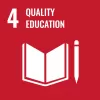
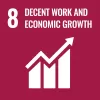
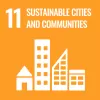
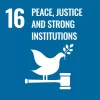
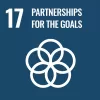
This activity is part of the project:
Erasmus Generation in Action (EGiA)